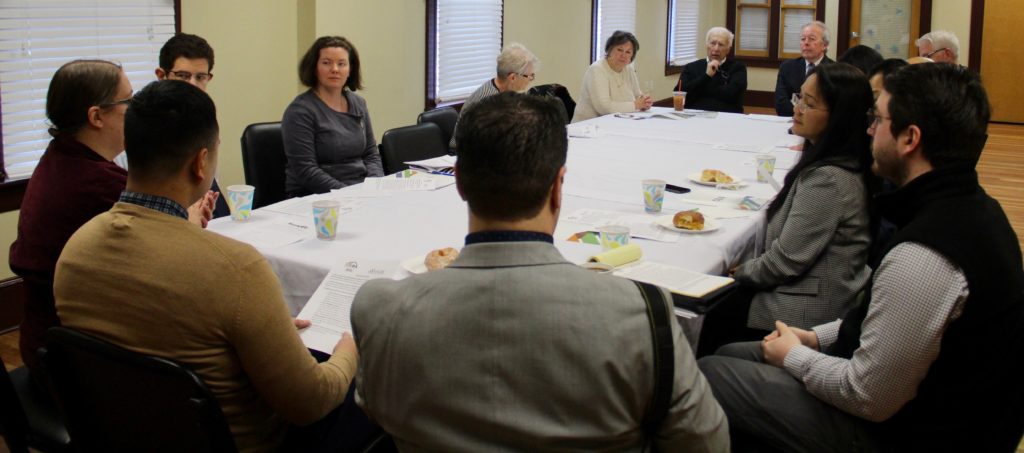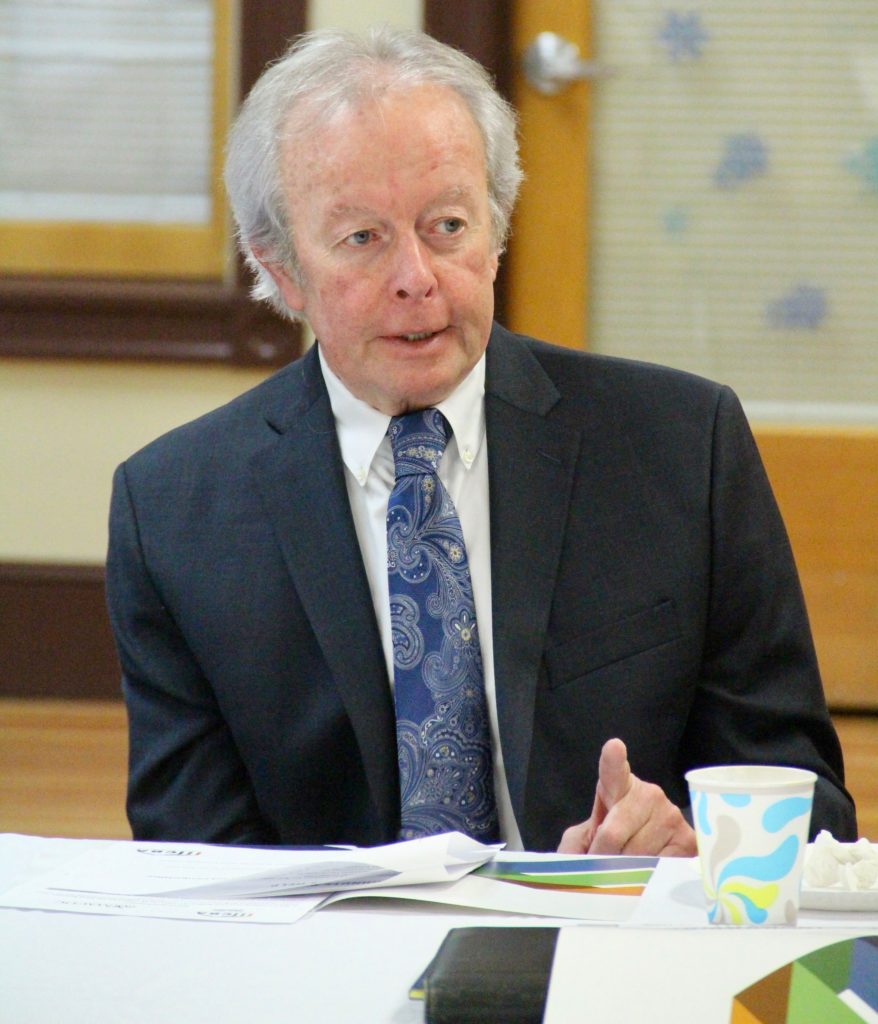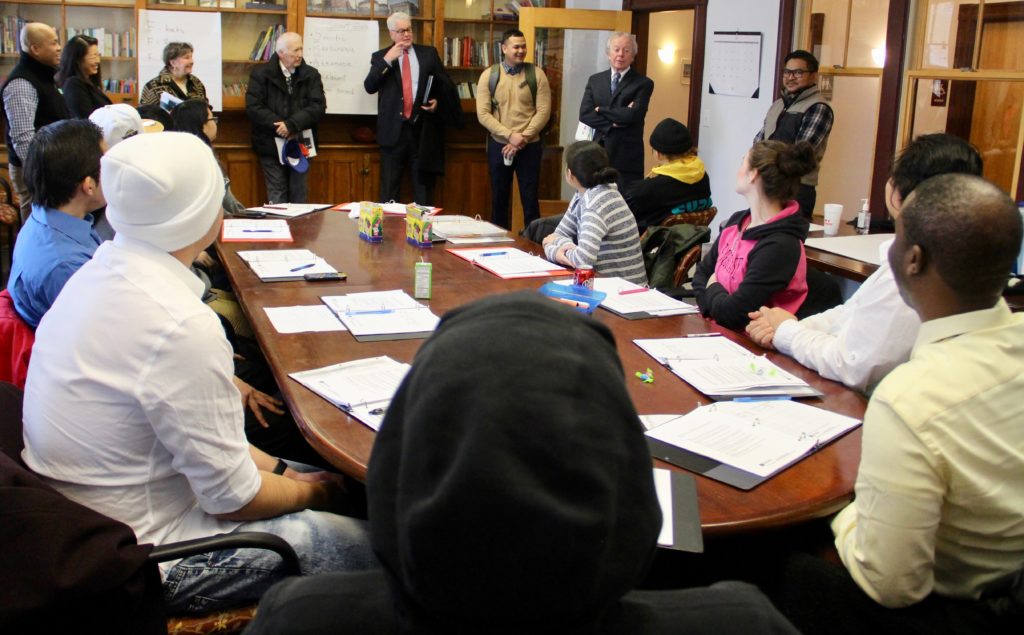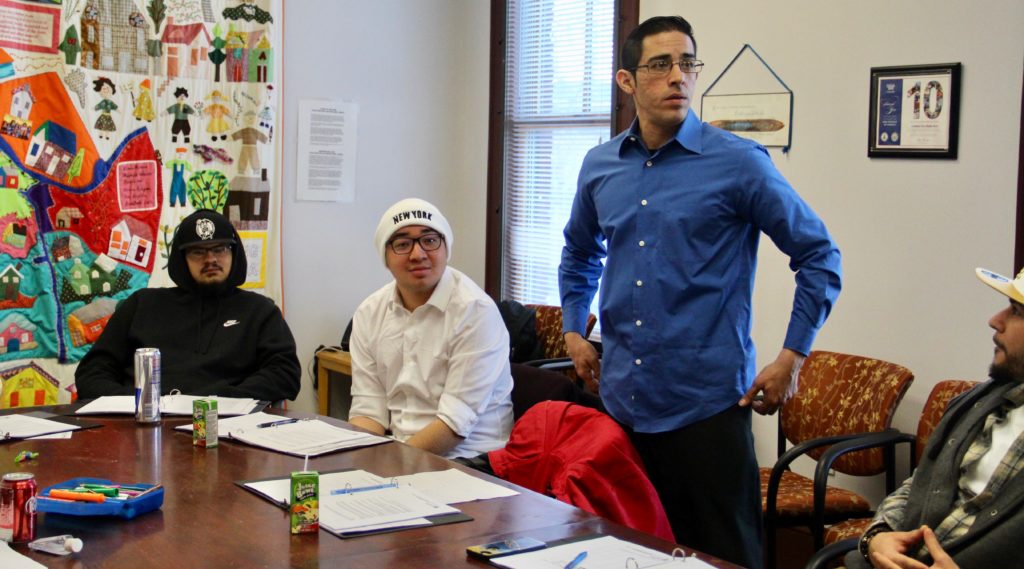
Lowell is in a housing crisis, with 57.7 percent of renters in the city paying more than 30 percent of their income on housing. The median renter’s household income in the city is $30,798 annually, while the median gross rent is $1089 monthly. There needs to be stronger support for affordable housing development and programs.
Residents need better access to inclusive social opportunities, educational, and job training programs to improve their futures.
Those were some of the messages staff and board member of Coalition for a Better Acre shared with elected officials Monday morning at their annual Doughnuts with Delegates event. Senator Kennedy was joined by State Rep. Rady Mom, Bob Spinney of State Rep. David Nangle’s office, Mayor Bill Samaras and City Councilor Rita Mercier.
CBA is a community development corporation, which in the last 37 years has developed 476 units of affordable housing, housing more than 1,400 people and creating 33 commercial spaces. The seventh largest taxpayer in the city of Lowell, CBA pays more than $650,000 in property taxes annually and boast a portfolio of $165 million in development projects. The organization also provides programming aimed at helping families become economically self-sufficient and break the cycle of poverty.
Current projects in the works include 44 units of veterans’ preference housing in Haverhill in partnership with Veterans Northeast Outreach Center, nine units of veterans’ preference housing in Dracut; nine units of permanent sober housing on Cross Street in Lowell for women in recovery from substance abuse in partnership with Megan’s House; and 27 units of permanent sober housing at the site of the current Lowell House building on Merrimack Street, in partnership with Lowell House.
Additionally, the restoration of the grotto at the former Franco American School site is 70 percent complete. It and the new surrounding park along the Northern Canal will be completed in the spring.

“I remember CBA’s beginnings with Charlie Gargiulo (in 1982),” said Sen. Kennedy. “The agency has come a very long way since that time and it is a very good thing.”
Doughnuts with Delegates is an opportunity to fill local leaders in on what CBA is doing, but also to advocate for legislation backed by MACDC (Massachusetts Association of Community Development Corporations).
Sen. Kennedy has already co-sponsored two bills being backed by MACDC, including SD. 746 An Act to Preserve Community Preservation Revenue filed by Sen. Cynthia Creem that will increase the base deed fee that goes into the CPA fund from $20 to $75. Communities that adopt the CPA can use that funding to develop affordable housing, as well as preserve historical sites and open space and improve outdoor recreation facilities.
The second bill is SD 1578 An Act Relative to Neighborhood Stabilization and Economic Development filed by Sen. Brendan Crighton, which provides municipalities with more tools to address blighted and abandoned properties and stabilize distressed neighborhoods.
“I am happy to sign on to and support all of the MACDC’s priorities,” said Sen. Kennedy.
Following a discussion that touched on legislative priorities, as well as a request from CBA staff to secure funding for local non-profits to train community members to work as counters in the upcoming federal census, the elected officials were able to go upstairs to visit the most recent cohort of students in CBA’s STEP (Supported Training Education Program) workforce development program.

STEP is a 5-week soft skill, job readiness training course. Graduates receive a $300 stipend and are guaranteed job placement at a medical device manufacturing company, free transportation to and from work for one year and 18 months of follow-up case management.
In the last two years, 50 people have graduated from the program; 76 percent of whom continue working full-time.

“That is unprecedented in workforce development programs, where there is generally a 30 percent success rate,” said CBA Executive Director Yun-Ju Choi, adding the entry level retention rate at manufacturing companies at Devens, which is where the majority of STEP graduates are placed, is 37 percent. She attributes STEP’s impressive success rate to the one-on-one case management services and support offered to graduates.
Luis Maldonado, 38, was searching for a job online without much luck when he noticed a flyer for STEP. He took a chance.

“Headed to the first day of class I thought ‘this is going to be dreadful. I am already going to know everything they say and it is going to be boring,’” Maldonado recalled.
On Monday, halfway through the five-week program, Maldonado admitted he had been very wrong.
He said he has learned a lot he did not know about his own emotions, how to read and react to the emotions of others, conflict resolution, and negotiation; all skills crucial both in life and in the workplace. Additionally, he said he sees his 12 classmates as more than just potential future co-workers, but as friends and a community of support.

Maldonado’s classmate, Jimmy Princivil, echoed his sentiments, adding he has been bouncing around looking for his way in the world, moving to Texas for part of last year, but not finding his path.
“I feel through this program I will be able to advance and find my place in society,” Princivil said.
